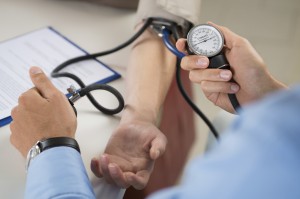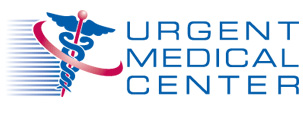
A huge percentage of the population will be affected by high blood pressure at some point in their life; currently around 1 out of every 3 adults in the US has HBP. Thankfully, hypertension is easy to detect and there are a number of ways you can manage it. Detecting high blood pressure is so important in order to implement a treatment plan. Without proper care hypertension can cause damage to your heart, kidneys, blood vessels and overall health.
Symptoms Of High Blood Pressure
Did you know you could live for many years with high blood pressure and never experience any symptoms? It is estimated that at least 20% of people living with hypertension remain unaware. Even without noticeable symptoms, blood pressure can reach extremely high and dangerous levels.
Some people do experience symptoms related to hypertension, but not usually until the problem is very far progressed. The most common symptoms include:
- Dizzy spells
- Headaches
- Increased number of nosebleeds
How To Help Manage High Blood Pressure
If you are one of the millions of people living with high blood pressure there are a number of things you can do to help manage the disorder and maintain your overall health.
- Maintain a weight that is healthy for you. When you gain weight your blood pressure can subsequently increase. By dropping only 10 pounds you can reduce your blood pressure, and the more weight you lose the more your blood pressure will decrease from there. Weight loss can also increase the effectiveness of blood pressure medications. By talking with a doctor you can determine the healthiest weight for you and your body type. Carrying excess weight around your waistline remains one of the biggest contributors to increased blood pressure. Men with a waist measurement of 40-inches or more, and women with a waist measurement of 35-inches or more are at a greater risk.
- Create an exercise regimen. It doesn’t take much time for regular exercise to pay off in terms of decreased blood pressure. If you spend about 30 to 60 minutes working out each day your weight and blood pressure will both drop, as your overall health increases.
It’s better to have shorter workouts throughout the week than to cram one or two days a week with working out, this method can actually be damaging instead of beneficial. Talking with a doctor can help you determine an exercise program that works for you.
- Eat a healthy diet. You are what you eat, and an unhealthy diet can lead to heightened blood pressure and other health problems. Eat plenty of vegetables, whole grains, fruits, and dairy products that are low in fat. Always read labels and skip out on foods that are high in sodium and salt. You should not consume more than 2,300 milligrams of sodium each day, and if you are over 51-years old you should not consume more than 1,500 milligrams of sodium each day.
Changing your diet is far from easy, but in honor of your health you can do it! Consulting with a doctor can help you implement the necessary dietary changes to live a long, happy, healthy life.
- Limit alcohol consumption. In small doses, alcohol can actually help lower blood pressure levels, but when alcohol is consumed in abundance it has the opposite effect. Consuming more than one or two drinks a day is generally enough to increase blood pressure up to several points. Even if you are not a consistent drinker, binge drinking (consuming more than 4 drinks at once) can radically hike up blood pressure.
- Regularly monitor your blood pressure. Annual physical exams include a quick test for blood pressure, but if you suffer from hypertension you may need to self-monitor at home throughout the year. If your blood pressure is not under control you may need to visit your doctor on a monthly basis as you work towards a solution. Once your blood pressure is better controlled, regular visits to the doctor are still important.
Other ways to help manage and reduce blood pressure include:
- Reduce stress levels
- Do not smoke tobacco products
- Avoid secondhand smoke
- Reduce caffeine intake
Everyone is at risk for high blood pressure at sometime throughout his or her life. Regular blood pressure tests are key to maintaining your health. Visit Urgent Medical Center today for a blood pressure test, as well as support and guidance for a heart-healthy life.




